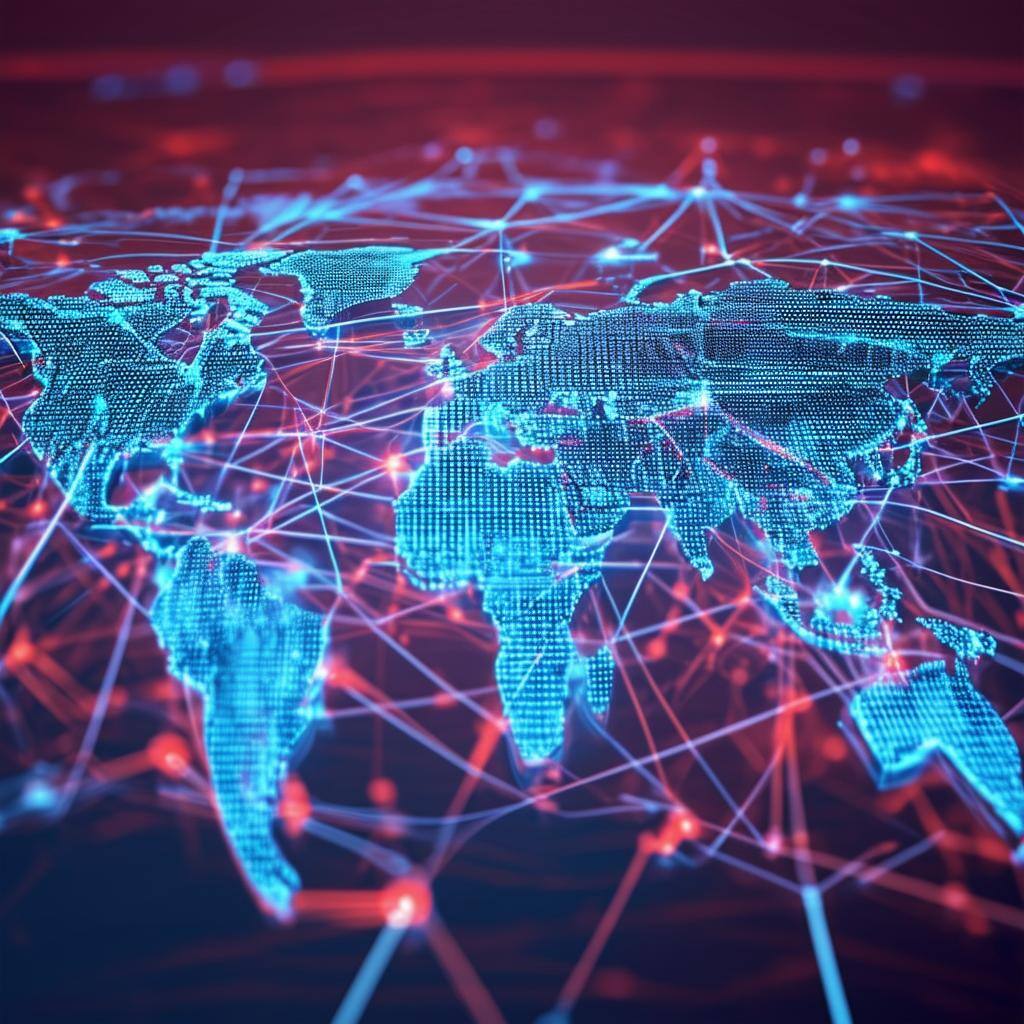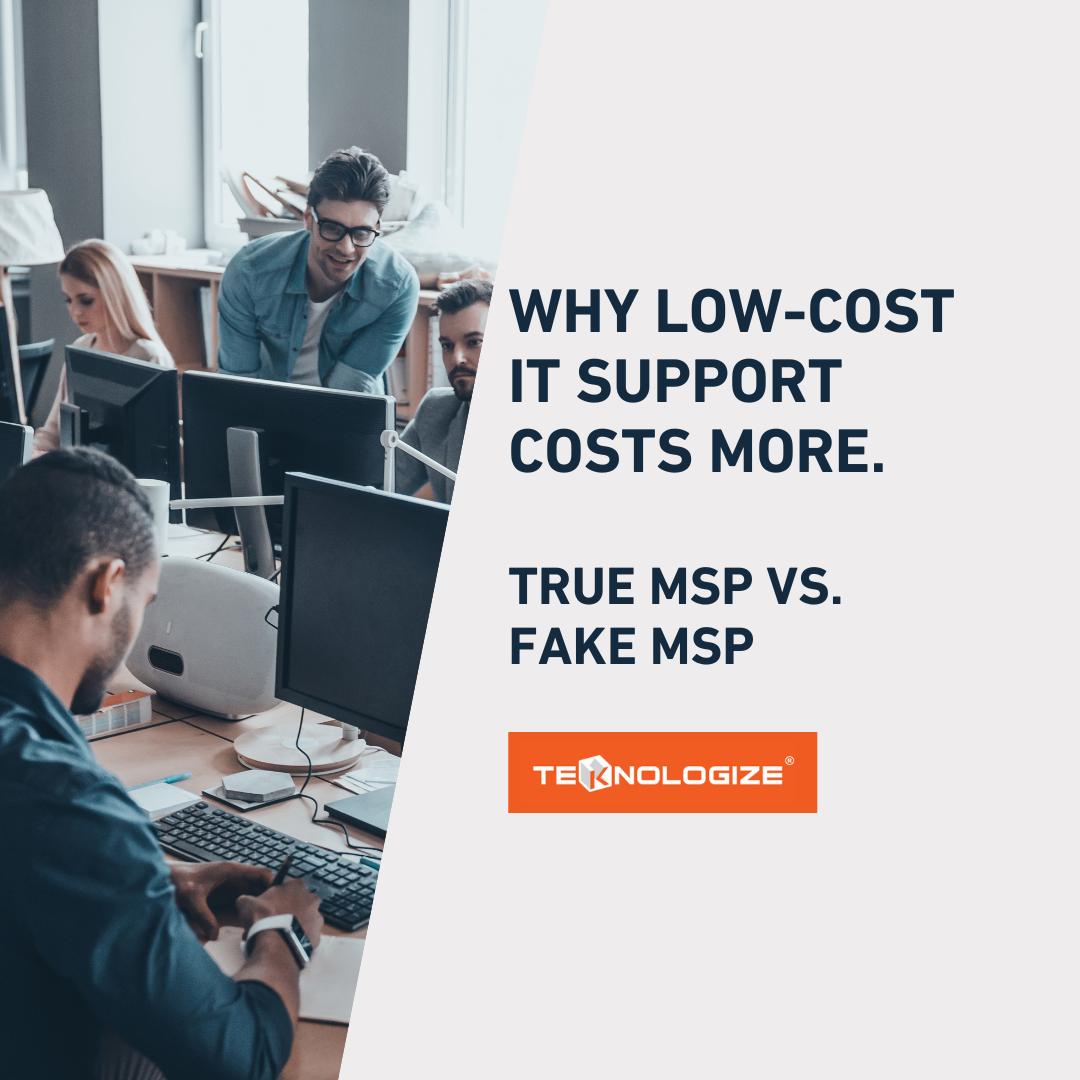Endpoint Detection and Response (EDR): Enabling Secure Growth for Small Businesses
Cybercriminals don’t go after businesses because they’re big.They go after businesses because they’re accessible. According to the IBM Cost of a...
3 min read
 Byron Martin
:
Oct 7, 2024
Byron Martin
:
Oct 7, 2024

October isn’t just about cozy sweaters and pumpkin spice; it’s also Cybersecurity Awareness Month, a time dedicated to raising awareness about the critical importance of staying safe online.
This is an opportunity for both the public and private sectors to come together and emphasize the importance of cybersecurity in our increasingly connected world.

In 2004, the President and Congress of the United States declared October as Cybersecurity Awareness Month. Since then, it has grown into a collaborative effort between governments and industries worldwide to promote cybersecurity, encourage people to take action to reduce online risks, and foster conversations around increasing cyber threats. October 2024 marks the 21st Cybersecurity Awareness Month, with an even greater focus on security in a world that’s more digitally connected than ever.
In 2023, CISA (Cybersecurity and Infrastructure Security Agency) launched the “Secure Our World” campaign, which has become the ongoing theme for Cybersecurity Awareness Month. This campaign underscores the need for everyone to take small, daily actions to protect themselves online. From securing devices to creating stronger passwords, the Secure Our World theme reminds us that every individual has a role to play in reducing cybersecurity risks.
Cybersecurity is defined as "the protection of computer systems and networks from attacks by malicious actors that may result in unauthorized information disclosure, theft of, or damage to hardware, software, or data."
In today’s digital age, wherever there is technology, there is a need for cybersecurity.
Whether you’re an individual or part of an organization, implementing cybersecurity best practices is essential. For businesses, government agencies, and individuals alike, developing tailored cybersecurity strategies helps protect against breaches, theft, and other online threats. Ensuring your systems are secure is crucial for maintaining operations, protecting financial information, and keeping personal data safe from cybercriminals.
Even though cyber threats are becoming more sophisticated, there are simple steps everyone can take to protect themselves online.
1. Use Strong Passwords and a Password Manager
Creating strong, unique passwords is your first line of defense against cyber threats. Follow these tips for better password security:
A password manager can make your life easier by securely storing your passwords, alerting you if you reuse passwords, and generating strong new ones. Some password managers can even fill in your credentials on websites, and they won’t fall for phishing attacks—even if you do. Plus, password managers use encryption to ensure that password managers never "know" what your passwords are, keeping them safe from cyber attacks.
2. Turn on Multifactor Authentication
Enable MFA on accounts with sensitive information, including email, financial services, and social media accounts.
3. Recognize and Report Phishing Attempts
Phishing scams remain a top threat, where attackers try to trick you into giving up personal information. Look out for these red flags in emails or messages.
If you suspect phishing:
Do NOT
Do
4. Keep Your Software Updated
Regular software updates protect your devices from the latest cyber threats. Updates often include security patches that fix vulnerabilities that hackers might exploit. Turn on automatic updates to ensure your devices, browsers, and apps are always up to date. If you see a notification to update your system, don’t ignore it—keeping your software current is key to staying secure.
Cybersecurity Awareness Month serves as an annual reminder of the importance of protecting yourself online. But remember, cybersecurity is a daily commitment. By taking simple steps—like creating strong passwords, enabling MFA, recognizing phishing, and keeping your software updated—you can significantly reduce your risk and help build a safer online world for everyone.
CISA Cybersecurity Awareness Month
![]() Teknologize is a SOC 2 Type II accredited Managed IT and Cybersecurity provider serving small to mid-sized businesses across Washington and Oregon. We deliver full-service Managed IT Support, Co-Managed IT Support, advanced Cybersecurity Solutions, and IT Compliance Services for regulated industries, including Healthcare, Financial Institutions, the Utilities Sector, Manufacturing, and Professional Services.
Teknologize is a SOC 2 Type II accredited Managed IT and Cybersecurity provider serving small to mid-sized businesses across Washington and Oregon. We deliver full-service Managed IT Support, Co-Managed IT Support, advanced Cybersecurity Solutions, and IT Compliance Services for regulated industries, including Healthcare, Financial Institutions, the Utilities Sector, Manufacturing, and Professional Services.
👉 Book a Discovery Call to see how Teknologize can support your business.
Our Offices
Tri-Cities, Washington – 509.396.6640 | Yakima, Washington – 509.396.6640
Bend, Oregon – 541.848.6072 | Seattle, Washington – 206.743.0981
Questions about your IT or Cybersecurity? Give us a call today
%20Enabling%20Secure%20Growth%20for%20Small%20Businesses.png)
Cybercriminals don’t go after businesses because they’re big.They go after businesses because they’re accessible. According to the IBM Cost of a...

IT Support Companies Can All Sound the Same, Until You Know What to Look For Business owners all want the same thing from their IT: reliability,...

Many SMBs don’t actually have an IT budget; they have a list of last year’s expenses. Everything goes into one bucket, and next year’s “budget” is...